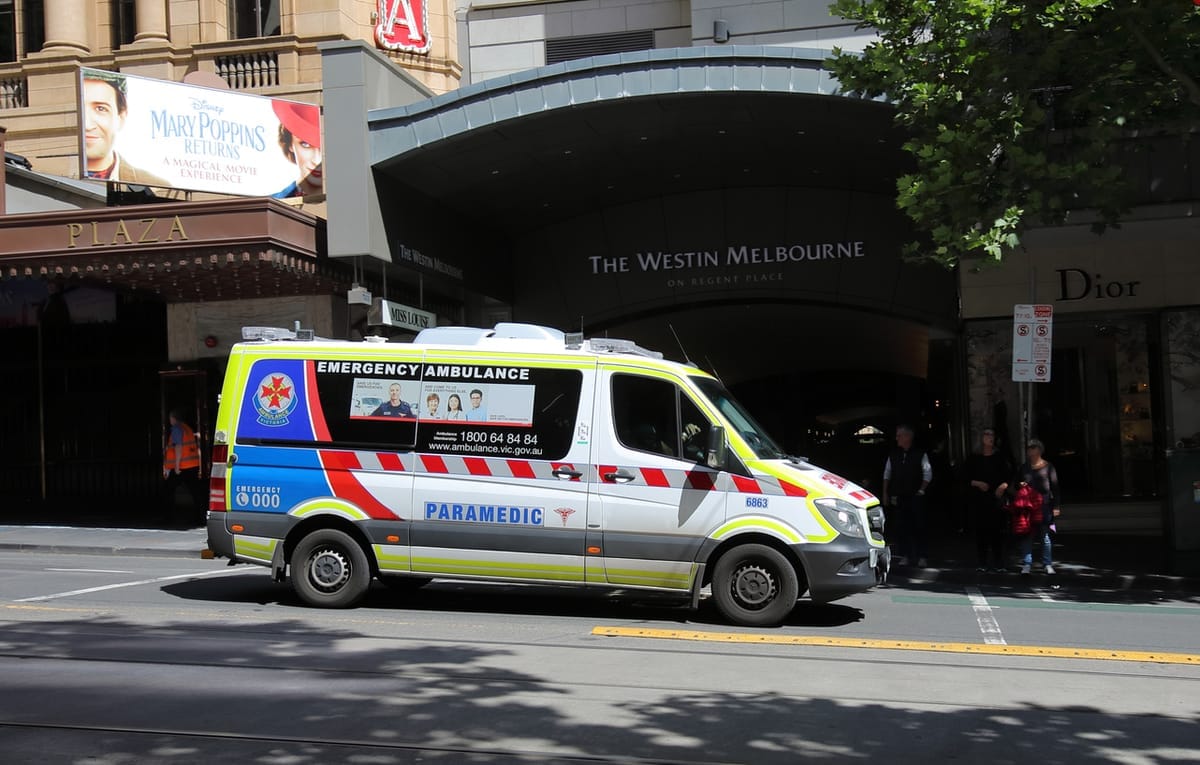
The timing is impeccable. Just as the landmark Beyond the Emergency report into paramedics and men’s mental health is released – with world-first research by Monash University and Turning Point – submissions also open for the Royal Commission into Victoria’s Mental Health System.
Meanwhile, the Productivity Commission, with a national focus, has more than 500 submissions on the state of the nation’s mental health system to go through before it reports back to the federal government next year.
Potential change, or reform, is in the air.
Government statistics reveal that almost half (45 per cent) of all Australians have suffered some kind of mental disorder in their lifetime, with 20 per cent in the previous year. The numbers are rising, with more people reporting anxiety or depression-related illnesses.
So, who are the first responders to men in a mental health crisis? In the main, it’s paramedics and the ambulance services. Beyond the Emergency – funded by Movember and Beyond Blue – is a study over three years of most states and territories (Western Australia and South Australia weren’t included) into men in a mental health crisis and their experience of using paramedic services.
In many ways, it’s a blueprint for the way forward in the Australian male mental health experience, and for the paramedics at the front line.
Alarming ambulance data
The project’s lead is Professor Dan Lubman from Monash’s Addiction Research Centre and Eastern Health Clinical School. He’s also the director of Eastern Health’s Turning Point.
The major finding of the report – and the most alarming one – is that ambulance data shows self-harm among males is three times higher than hospital data was able to show. This is because ambulance data has not been analysed in this way in the past, and also because hospital data may not capture the full range of a patient’s injuries or conditions.
That means that while data shows that there were 10,000 male presentations to hospital for self-harm incidents over the three years, the real number is 30,000.
“It’s like an iceberg,” says Professor Lubman. “Before, all the data we had was above the water. This data is under the water. We’re grossly underestimating the burden on health services, emergency services and the community.”
The report, launched by Beyond Blue chair and former prime minister Julia Gillard this week, also reveals that of the 112,000 ambulance call-outs for men with mental health issues in 2015-16, more than 60 per cent involved alcohol or drugs, and the overwhelming majority (78 per cent) were taken to hospital. It also reveals that paramedics themselves feel undertrained in dealing with patients in a mental health crisis.
"We’re grossly underestimating the burden on health services, emergency services and the community.”
“We have an undertrained workforce who are seeing people in crisis,” Professor Lubman says. “The system instructs them to take those people to hospital – they’ll get assessed in triage there and wait for further help. But we know that many don’t stay, and leave before being seen. If they’re seen, they might not be linked in with effective care. Then they go home and wait for the next crisis and call an ambulance again – and we have this circular failure in service delivery.”
Fewer than 14 per cent of surveyed paramedics felt they had comprehensive training for mental health responses, except for intoxication. Fewer than 13 per cent felt their training was adequate enough to respond to patients having mental health episodes, except for chemical and physical restraint. Less than one-third felt “highly confident”, except in drug overdose scenarios, and more than two-thirds felt underprepared to use communication skills as a response on the scene.
Mental health stigma
The report also shows that some paramedics hold stigmatising attitudes towards people experiencing mental health issues with alcohol and drug issues, and shows that many paramedics believe their primary role is to take the patient to hospital without recognising the potential to provide information and support.
Additional key stats include:
- More than 60 per cent of ambulance attendances were after hours
- Forty-two per cent of cases were for men the ambulance service had previously helped
- More than 30 per cent of cases also involved police.
Professor Brett Williams, head of Monash’s Department of Community Emergency Health Care and Paramedic Practice, said the department was committed to preparing paramedic students for mental health and men’s mental health issues.
“Preparing paramedic students for such roles is one of our priorities in ensuring our Bachelor of Paramedicine and Master of Specialist Paramedic Practice curricula are contemporary; a curriculum that is led and informed by evidence and endorsed by industry and community expectations,” he said.
“The traditional role and what paramedics see each day has changed quite dramatically over the past decade. Because of this, we’ve shifted and updated a significant part of our curriculum to reflect these changes; students receive units of study solely on mental health, and mental health is integrated throughout all year levels of our programs. Furthermore, we pay particular attention in building students’ capacity in a range of non-technical skills (i.e. compassion, empathy, listening), which we consider equally as important as the technical skills.”
He said research by his department showed paramedic students have lower self-reported empathy towards certain medical conditions, including mental health and homelessness, compared with other Monash healthcare students, but knowing that “allowed us to better inform our curriculum and hopefully ensure that the next generation of paramedics are better-prepared for the changing landscape of men’s mental health needs.”
A systemic problem
Professor Lubman says the issues in paramedicine highlighted by the report were a sign the entire Australian healthcare system had got it wrong in regard to mental health.
“What we’ve seen with the mainstreaming of mental health into the acute health system is the fact mental health is a growing and highly prevalent issue in our community with a huge impact on health, and we’ve not been preparing the workforce for that. If people aren’t being trained or even being made aware this is a major component of the job, then it will create an impact on interactions and attitude.
“The question for the royal commission is, how do we set up an effective and caring service system? We need to make sure first responders are well-trained, because they’re a de facto mental health service, but are typically never considered in planning of an effective mental health system.
“Across the whole health system,” he says,” we see lots of missed opportunities for intervention. A lot of our healthcare system is set up as transactions rather than thinking of how we can do wraparound care and provide care in a way that keeps people out of hospitals and emergency departments.”





